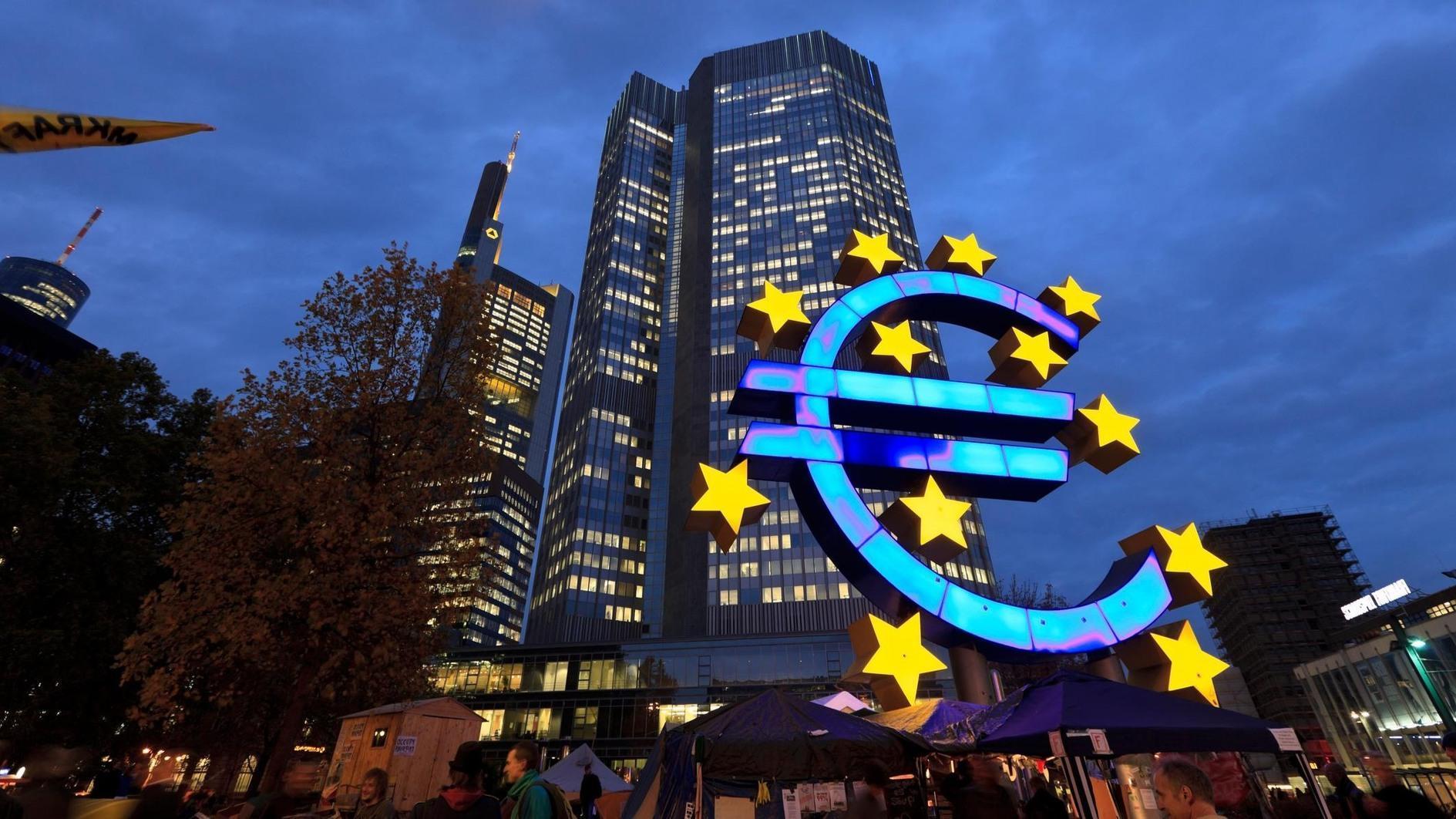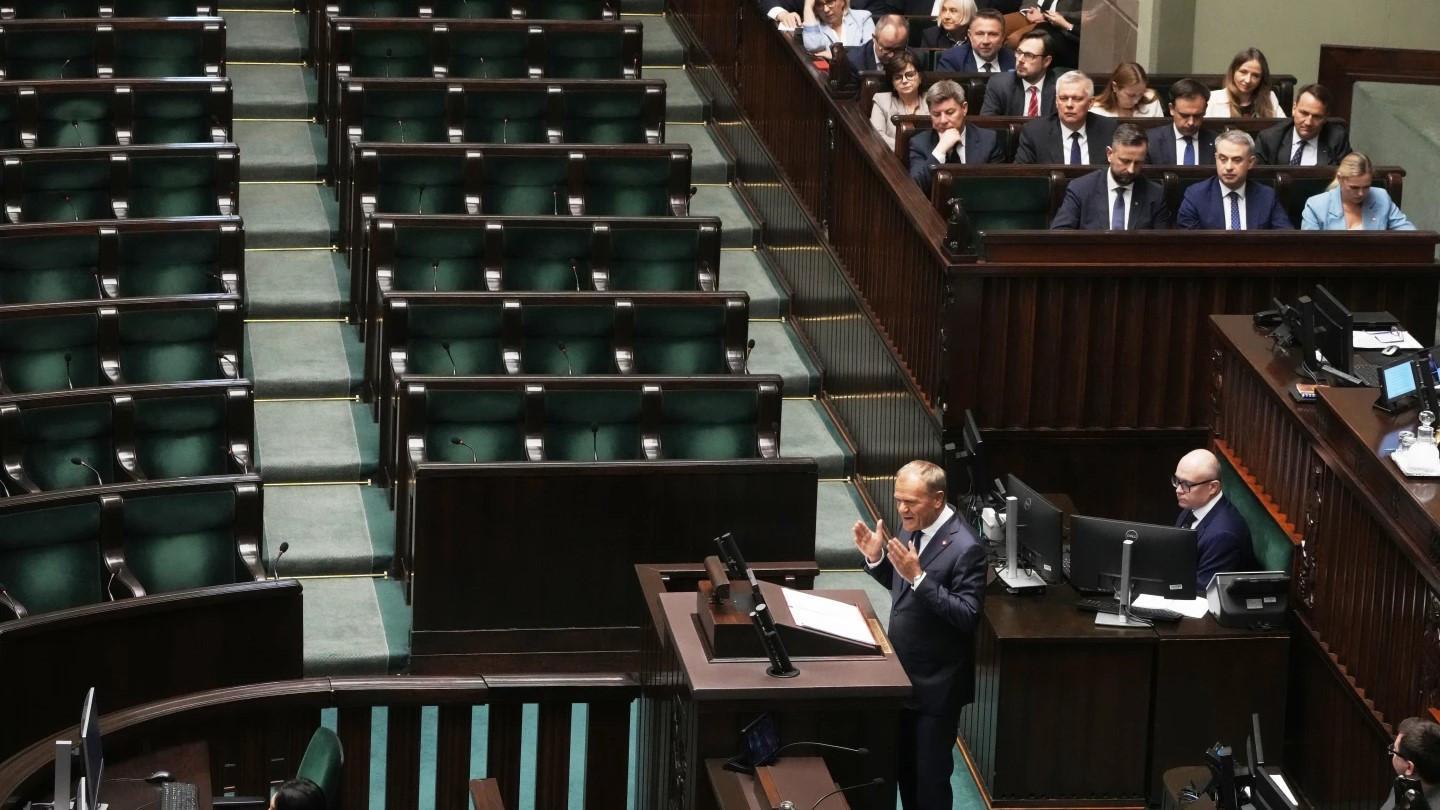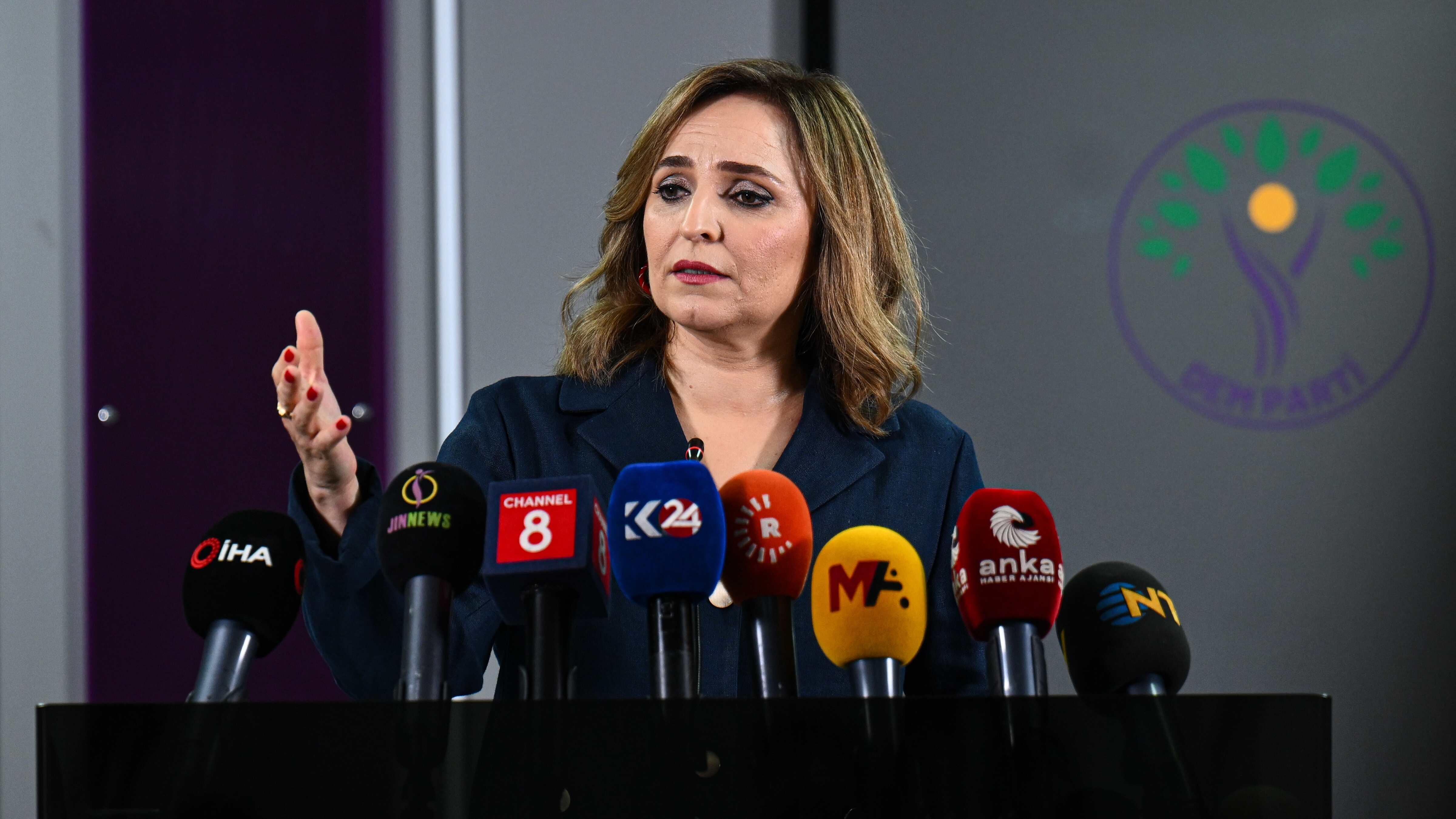ECB expected to cut rates again as trade war rumbles on
FRANKFURT

The European Central Bank is expected to deliver its seventh-straight interest rate cut this week as U.S. President Donald Trump's volatile trade policies add to headwinds for the sluggish eurozone.
Even before Trump unleashed his on-off tariff onslaught on the world, the ECB had been bringing borrowing costs down as inflation eased.
Worries about sluggish performance in the 20 countries that use the euro have increasingly overshadowed inflation concerns as higher rates have pinched businesses and households.
Trump's tariffs have added to the sense of urgency. Europe is in the president's crosshairs over its hefty surplus in traded goods with United States, stoking fears about a heavy hit to the continent's exporters.
Predicting a cut when the ECB's governing council meets on June 5, HSBC said the eurozone's "near-term outlook has deteriorated on the recent US tariffs announcements and related uncertainty."
Analysts expect another quarter-point reduction that would take the Frankfurt-based institution's key deposit rate to 2 percent.
But observers believe the June cut could be the final one in the current streak, with the ECB likely to pause at its next meeting in July to take stock of the latest economic developments.
The ECB's series of cuts stands in contrast to the U.S. Federal Reserve, which has kept rates on hold recently amid fears that Trump's levies could stoke inflation.
Trump has already hit the EU with multiple waves of tariffs. It currently faces a 10-percent "baseline" levy as well as 25-percent duties on cars, steel and aluminium.
He has paused even higher rates on the EU and other trading partners to allow for talks, momentarily easing some of the tensions that had roiled global markets.
But in a sign the trade war may be far from over, he threatened last month to swiftly impose a 50-percent tariff on the EU, only to delay the move a few days later to July 9.
Highlighting the alarm felt in Europe, ECB President Christine Lagarde said last week that the global economic order backed by US leadership was "fracturing."
"Multilateral cooperation is being replaced by zero-sum thinking and bilateral power plays," she said in a speech in Berlin.
But the ECB faces a tricky task in protecting the eurozone from the mercurial U.S. president's trade policies while keeping inflation stable.
Euro-area inflation was 2.2 percent in April, slightly above the ECB's two-percent target and higher than expected.
May's inflation estimate will be published by Eurostat on Tuesday ahead of the ECB meeting.
But most recent signs suggest price pressures are easing faster than previously thought, and the ECB is expected to cut its inflation predictions when it releases its own new economic forecasts Thursday.
Most analysts expect Trump's tariffs to add to downward pressure on eurozone inflation, particularly as it might lead China, facing the highest U.S. levies, to redirect inexpensive manufactured goods to Europe.
















